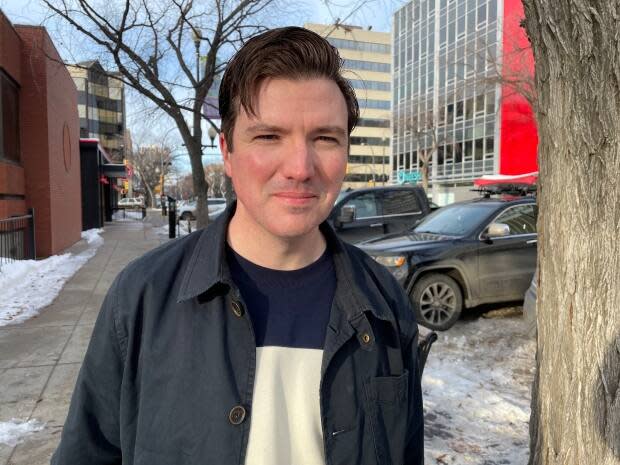Enforce COVID-19 health orders, Saskatoon lawyer says, with only 2 of 28 fines from last year paid
Twenty-eight people and businesses were fined in Saskatchewan last year for violating coronavirus-related public health orders — yet only two have paid their fines.
And in 10 of those cases, the charges have been dropped or withdrawn for one reason or another, according to details provided by Saskatchewan's Ministry of Justice following a request by CBC News.
Saskatoon defence lawyer Brian Pfefferle said the whole point of these fines is to encourage people to comply with the public health orders.
"If you don't have enforcement and you don't have consequences, the laws are useless," Pfefferle told Saskatoon Morning's Leisha Grebinski.
"Enforcement measures need to take place … if warnings aren't good enough," he said.
"And the time for 'warnings are enough' — I think a lot of our leaders are saying now we're past that time. Actual charges make sense. And if those people have disputes, they can go to court."
Pfefferle said there could be a number of reasons why only two people have paid fines.
"No. 1 is that our provincial courthouses, where people would be attending, have been on shutdown as a result of the COVID-19 response," he said, so many cases are either being postponed or adjourned at the moment.

"The other aspect is that we're also dealing with a [court] backlog. And so there's going to have to be … triage decisions made as to which matters are going to go ahead, which matters are going to be resolved informally through other channels."
Pfefferle, who is co-president of the Saskatoon Criminal Defence Lawyers Association, said one problem is that the public is in the dark about why 10 of those charges have been dropped — because court dockets are not publishing those names.
"There could be a lot of things going on behind the scenes, but we just don't know," he said.
For example, a person fined could offer an explanation for how the violation happened, and there could be a diversion or a mediation, Pfefferle says.
But there should be more transparency about who has been charged, he says.
"If we look at other jurisdictions like British Columbia, for example, and even different places in Manitoba, people can access the dockets where people have been charged online," he said.
If a person gets a COVID-related ticket and has their day in court, that should be on the provincial court docket that is available to be seen by anyone, he says.
"I see no reason why we couldn't create a website where there's a rolling docket, where people can identify who's up that day. Individuals who are charged can be reminded of their court date. It's easy for them to see. And then outcomes can be published."
Man charged twice going to court
Mark Friesen is one of those people charged who has not paid his $5,600 in fines.
Friesen was charged twice last month for organizing what he called "freedom rallies" in both Regina and Saskatoon.
He has court appearances in March and May, and said he has no intention of paying the fines.
"I'll be surprised if mine ever make it to court, to be honest with you," Friesen said.
"We found through the Justice Centre for Constitutional Freedoms who are representing myself and many others, that most of these don't make it to court. They get thrown out before they get to court."
The provincial ministry said unpaid fines may be reported to the Canada Revenue Agency, and sent to a collection agency.
Pfefferle said if you are convicted, much like speeding tickets, you will have to pay those fines sooner or later.
"People think that they're just going to forget about them," Pfefferle said. "They're not going to be able to do that. They will get harassed and potentially could get arrested and do some time in default."
'Law has to be enforced': doctor
Dr. Hassan Masri, who cares for coronavirus patients in the intensive care unit at Royal University Hospital, said the laws have to be enforced to keep everyone safe.
Masri said there will always be a small percentage of the population that will not follow the rules.
"The current restrictions are not being enforced to the fullest of the law. And it makes people more likely to break the law," Masri said.
"And that small percentage, the law has to be enforced upon them," Masri said.

He pointed to an outbreak at Crackers, a restaurant and karaoke bar in Saskatoon, as an example of how several cases can be connected to one location. So far, 80 COVID-19 cases have been linked to that location.
The owners say they have not been ticketed, nor has anyone ordered Crackers to close. The Saskatchewan Health Authority previously told CBC News that karaoke was not a risk factor in the outbreak.
But Masri argues that "a place like that should not have been allowed to operate and spread the virus the way it did."

